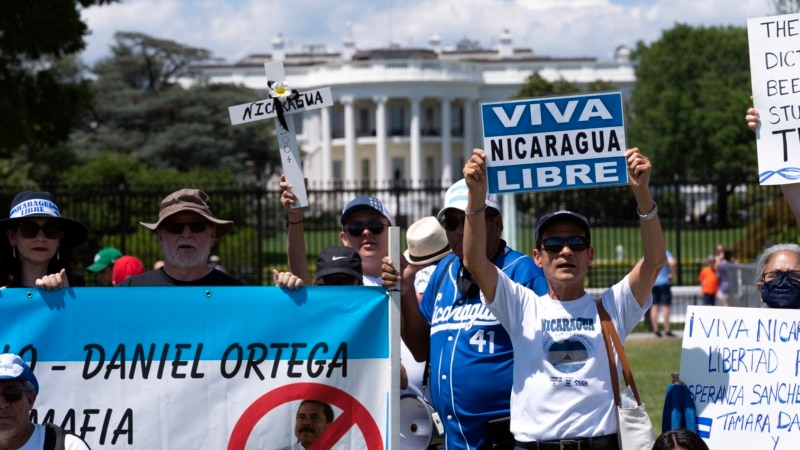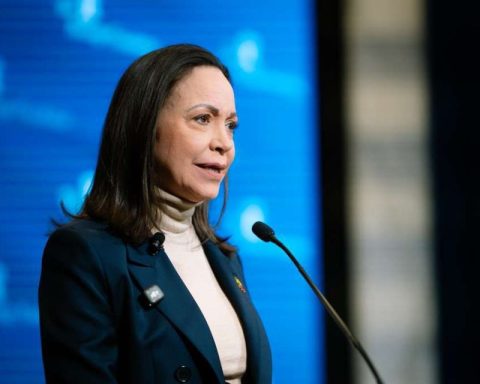
A condemnatory resolution on “the human rights crisis in Nicaragua” was approved on Friday during the fourth session of the General Assembly of the Organization of American States (OAS), in which more than twenty foreign ministers from the region participate.
The resolution, which was approved by acclamation, resolves to urge the Nicaraguan government “to cease all violations of human rights and respect civil and political rights, such as religious freedoms, and the rule of law.”
In addition, the document calls on the Nicaraguan government to release “immediately and unconditionally all political prisoners” and to refrain from “repressing and arbitrarily detaining leaders of the Catholic Church.”
It also demands to provide information on the physical and psychological health of Bishop Rolando Álvarez, a strong critic of the government of Daniel Ortega who was arrested on August 4 when he was in the Matagalpa curia, in the north of the country. Álvarez is in the prison known as La Modelo, in Managua, where he is serving a 26-year prison sentence.
The only and last time that Nicaraguan justice showed Álvarez in jail was on March 26.
The president of the Inter-American Court, Ricardo Pérez, pointed out during the plenary session that the last official communication they had from the Nicaraguan government was on April 11, 2022.
The fifth point of the resolution calls on the authorities to “rescind” the measures that deprived former political prisoners and other opponents of their liberty.
Negotiations led to consensus on the final resolution, which in its first draft had been criticized by Nicaraguan opponents for containing proposals from the Brazilian government that sought to “soften” the condemnatory language against the Nicaraguan government.
However, Brazil decided to backtrack on its most controversial proposals after an “informal meeting” held on Wednesday morning with the other participating countries.
The new document retains the language of condemnation of the original, mentioning facts that the initial recommendations of Brazil tried to cast into doubt, according to human rights organizations, such as that “serious conditions have pushed” hundreds of thousands of Nicaraguans into exile, something that the initial recommendation of Brazil had omitted.
In the final resolution, it also restructured the demand that Nicaragua must “allow full and unimpeded access to its territory” for human rights organizations, and that it “fully cooperate” with them.
Brazil, Colombia and Chile offered joint alternatives to point 11 of the resolution, which they previously described as Nicaragua’s “refusal” to commit to international human rights organizations. In the approved document, this is referred to as a “lack of commitment” from the government.
Point 12 of the resolution, suggested by the same three countries, states that the OAS is willing to “engage constructively with Nicaragua and international human rights mechanisms in order to comply with its international human rights obligations.”
In an interview with the voice of america On Wednesday, Francisco Mora, US ambassador to the OAS, announced that I was confident in which a “forceful resolution” would be approved that “was not going to be softened.”
Resolution approval is “an achievement”: analysts
The approval of the resolution shows that “the intransigence of the Ortega-Murillo dictatorship has isolated them more and more and that the last president who tried to give him a lifeline was rejected,” he told the VOA sociologist María Teresa Blandón, referring to an “attempt by Lula to soften the statement.”
“We are facing a new slam because, as we have been saying insistently, Ortega and his wife do not want to get out of power, they are clinging to power, and they are not going to understand or have the capacity to reason or to approach positions even with the governments that They have shown some sympathy for his regime,” he stressed.
The former Nicaraguan ambassador to the OAS, Arturo McField, commented that the resolution “is a triumph for the people of Nicaragua” because “it was not possible to establish a false narrative about what is happening in the country, but rather the things that are happening were said , how they are happening and, above all, the need for a change”.
The draft resolution was originally submitted by Argentina, Brazil, Canada, Chile, Colombia, Costa Rica, Mexico, Panama, Peru, and the United States.
Antigua and Barbuda expressed itself during the approval of the project, assuring that “the OAS has extended the Nicaraguan government over time on multiple occasions, offering assistance to restore democracy and its fundamental principles of practice. Unfortunately, those efforts have been met with scorn instead of progress.”
Connect with the Voice of America! Subscribe to our channel Youtube and activate notifications, or follow us on social networks: Facebook, Twitter and instagram.















